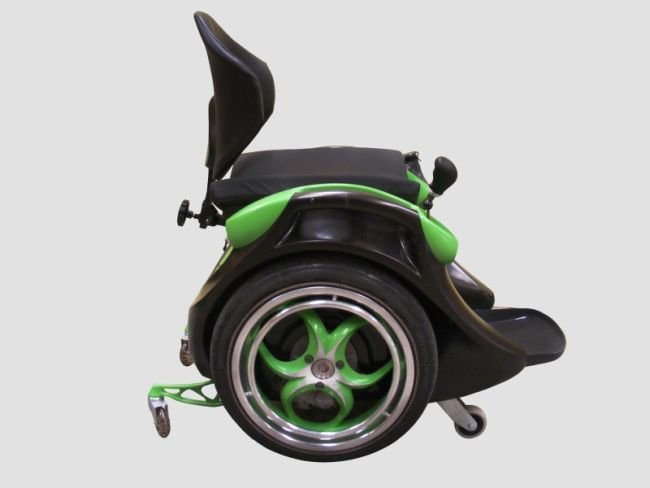
Everyone either is in, has been in, or knows someone who is in, or has been in a wheelchair. It’s rarely, if ever, a happy occasion, and the road to recovery – at least for those who have to use a wheelchair due to an injury – can be gruelling.
One New Zealand start-up is trying to ease that process, with a goal of revolutionising the way we think about wheelchairs. Ogo, built by Kevin Halsall in his Otaki workshop, recently won $10,000 (among other prizes) from equity-crowdfunding service Equitise, which will help the start-up move forward with its growth plans.
“It’s been fun up till now,” says Halsall.
“It’s part of my passion. The more I’m innovating, the bigger the hole I see in the market.”
What makes the Ogo different from an ordinary electric wheelchair is its moving seat, which allows for the entire wheelchair to be operated hands-free by the operator’s core muscles if they so choose. It is based on a Segway, which Halsall had to buy for around $14,000 in order to use it for parts.
“The seat actually moves forward and back and side-to-side,” explains Halsall. “You just lean to wherever you want to go. The Segway [technology] creates the self-balancing aspect of it.”
The first version of the Ogo was built in 2011, which Halsall made for a paraplegic friend.
“I wanted a short name that’s easy to remember and spell,” he says.
The current version of the Ogo is the third prototype. Made of fiberglass, it has a top speed of 20kph and can travel between 30 and 40 kilometres before needing to be recharged by being plugged in to an electrical outlet.
“It’s been a four-year project up until now,” says Halsall, who adds he’s put “thousands” of hours of work into it.
There’s plans to market the Ogo, which Halsall says will help fulfil a goal of making the wheelchair available to more people who could benefit from it.
“The hardest part is finding the right people and taking this further,” he says.

Taking it further should be a bit easier for Halsall, however, thanks to recent accolades.
Ogo won first place in the “starting a new business” category in a competition sponsored by Equitise that the trans-Tasman crowd equity platform hosted to mark its acquisition of rival equity crowdfunder Rabble. The prize pack included $10,000 in web development and design work, 10 hours of mentoring from investor and start-up guru Suse Reynolds, and one year of accounts/tax returns advice valued at $2,500 from Deloitte Private.
“The Ogo wheelchair is an innovative feat of Kiwi ingenuity,” says Will Mahon-Heap, New Zealand country manager for Equitise.
“We were captivated by its ease of use and the tangible good for society that it produces. We are thrilled to be working with Kevin in helping him achieve his goal of taking the Ogo wheelchair to the world.”
While taking things further may be among Halsall’s plans for the Ogo, the most important thing, he says, remains helping others – whether or not the Ogo ends up taking off.
“The most rewarding part is seeing people’s reactions and the difference it can make in people’s lives.”
But $10k in cash and free business advice certainly doesn’t hurt in getting that mission off the ground.




